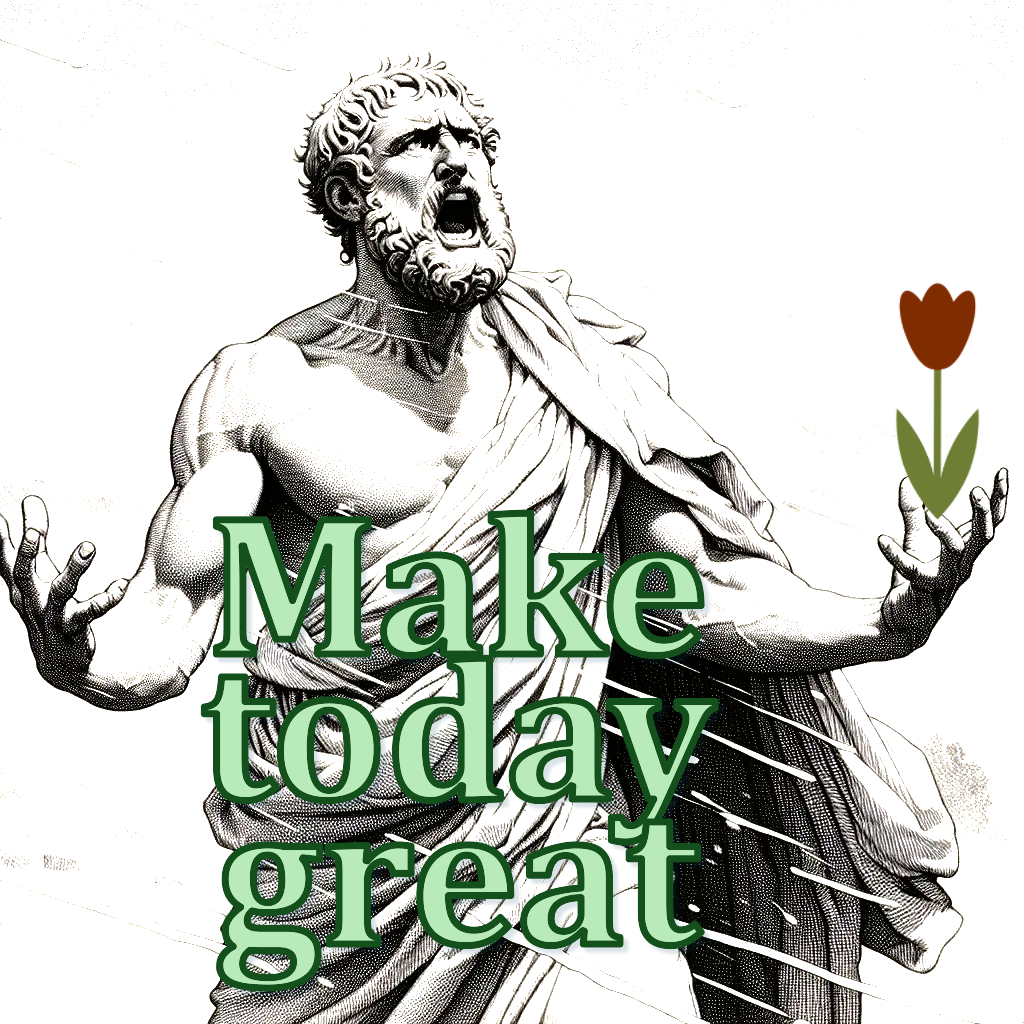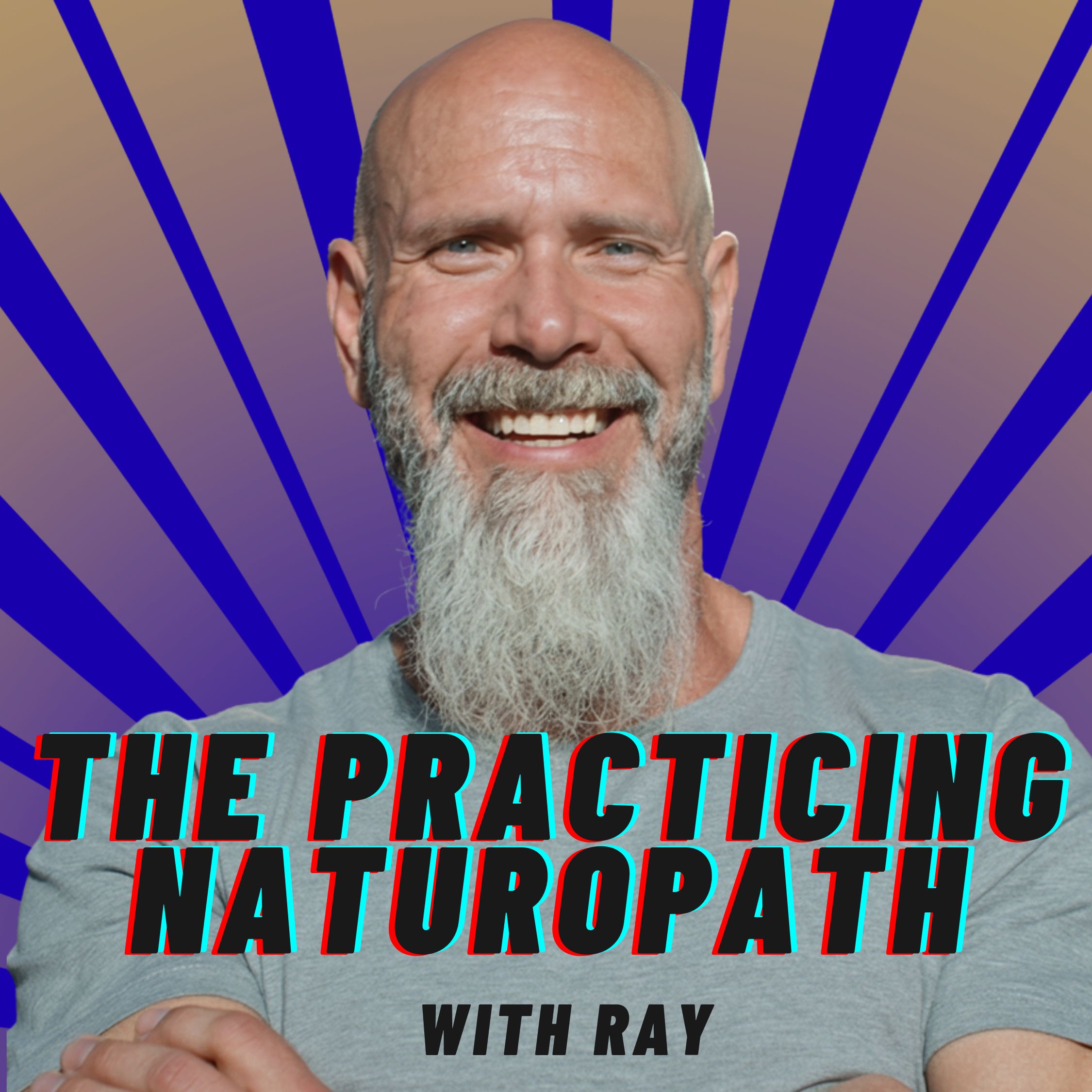The Power of Imperfect Action: Overcoming Procrastination with Stoicism
Welcome to another deep dive into the world of Stoicism and practical philosophy! In this blog post, "The Power of Imperfect Action: Overcoming Procrastination with Stoicism," we'll be exploring the transformative concept of "imperfect action" and how it can be a powerful tool for overcoming procrastination, achieving your goals, and living a more fulfilling lifestyle. Inspired by the wisdom of Stoic philosophers like Seneca, we'll unpack how embracing imperfection can actually be the key to progress and personal growth.
This blog post expands on the themes explored in our latest podcast episode, if you didn't hear it yet, Listen in to unpack the wisdom in Episode 4: "Mastering Time⏳ : Life Lessons from Seneca's Stoic 💌 Letters", where we delved into Seneca's insights on time management and living with intentional purpose. Just as Seneca advocated for making the most of each moment, we'll see how taking everyday action, even when we don't feel fully prepared, aligns with Stoic principles and paves the way for a life of meaning and achievement. This is a journey into understanding how to translate philosophical ideals into tangible actions, ultimately allowing you to live a more purposeful, intentionally fulfilling, and satisfying life.
Introduction: Embracing Imperfect Action
How often have you found yourself paralyzed by the pursuit of perfection? The desire... The wants... to get things "just right" "just perfect" can often lead to a series of constant procrastination and inactions by you. Some people do not notice this until they are old and grey. We wait for the perfect moment to begin, the perfect conditions, the perfect knowledge, only to find that the moment never arrives because their are zero perfect moments and zero perfect conditions. You MUSt start NOW, whatever it is you want to do in the thick of your life, and deal with all the other "life" that will happen to you. There are zero perfect moments. The time is now! This is a part of it all This is where the concept of "Imperfect Action Prevails" comes into gameplay, because the imperfect Action taken by you will help you prevail.
Imperfect action is about taking the first step, even during uncertainty, even when you don't have all the answers, even when you know you'll make constant mistakes, and even when you feel uncertain about your life like right now. Just so you know !YOU WILL! Feel this way... It's all about embracing the adage of "imperfect action," so you can prevail in the face of all the adversity that you will face, that will crop up or come out of nowhere. It's all a test to see if you are worthy of the prize at the end of your vision. If you give up, throw your hands up and whine like a fat baby. Then you lose. You were not worthy of the prize. if you can stay true to the test. You will win!
The process of learning and growth take time, rather than striving for immediate perfect actions-- their is the recipe of time to be baked into all that you want to do. It is more like a rough draft to a book you want to publish, full of scribbly notes, edits, give it to mentors for feedback and write down many questions in the margins for yourself, so you can get better with each draft of your life.
Imperfect action is the opposite of paralysis analysis; it's the antidote to procrastination, or I like to call it pro-crasti-pain or pro-crasti-pleasure. Either one won is an escape to living our best life. If we get lost in either pleasure or pain. This is the adversary winning. It's easy to get lost in either one long enough until you wake up 'old as fuck" and you have given up defeated. Now, when knowing that "Imperfect Action Will Prevails You" is a powerful tool for creating momentum in your life. Because no matter what happens you'll know that this is a part of the wonderful journey and the other part is figuring your way around it, through it, over it, or taking it with you to learn the blessing in the lesson. It becomes a "bad ass" scar for you to talk about later. Do you get this? Do you know how i got this scare? Let me tell you I was...
The Stoic Perspective on Action(s)--- MANY
Stoicism, at its core, is a practical philosophy focused on living a virtuous life. While Stoics value wisdom and understanding, they also emphasize the importance of action-action-action. With everything you do their will be a series of actions. They believed that virtue is not just a theoretical concept, but something that must be actively practiced in our daily lives through application. We MUSt go from theory, to daily practice to a life full of up and down dis-sastery to mastery. For Stoics, action is not about achieving an external outcomes, but rather about aligning our actions with our values and principles, so we can get their without loosing "Who We Are?" in the process.
This means at first acting and then learning to respond with courage, justice, wisdom, love and managing self-control, regardless of the circumstances or the potential consequences that occur to us. This active engagement with life is a core tenet of Stoic philosophy, focusing on what we can control within our power (our thoughts, our emotional reactions and our followed through actions) rather than what we cannot (external events and outcomes).
This perspective encourages us to act in accordance with virtue, understanding that the true measure of our character lies in our wise choices and our direct behaviors, even when faced with adversity. The goal is not perfection, but consistent effort towards living a virtuous life, one action at a time. SCREAM and move along to get stuff done.
Understanding Procrastination Through a Stoic Lens
Procrastination, from a Stoic perspective, is a manifestation of fear, anxiety, and a lack of self-discipline. We procrastinate because we fear failure, we fear judgment, or we simply feel overwhelmed by the task at hand because we haven't made a hard won plan. Write it down for your minds eye to take it in and accept your worthy journey. Stoicism offers a powerful antidote to procrastination by encouraging us to focus on what we can control: our thoughts, our emotions, and most importantly our actions.
Instead of devil dwelling on the potential negative outcomes or feeling paralyzed by the magnitude of the task, we can choose to focus on taking the next small step in the task, responding in accordance with how we work our values, and embrace the process of learning and growth with every situation we face.
By shifting our focus from external outcomes to the internal process of our virtues, we can overcome the fear and anxiety that fuel procrastination and cultivate the self-discipline needed to take consistent action. Procrastination, therefore, is not just a bad habit, but a failure to exercise our rational faculty and align our actions with our principles. Stoicism provides the framework for cultivating the mental fortitude to overcome this inertia and to act with intention and purpose with everything we do. We become aware of our present moments at all times.
Seneca's Timeless Wisdom on Time Management: A Foundation for Forward Action
Seneca, one of the most influential Stoic philosophers, wrote extensively about the importance of time management in his letters. He argued that time is our most precious resource and that we must be mindful of how we spend it. Seneca's wisdom provides a foundation for taking action by emphasizing the urgency of the present moment. He reminds us that life is fleeting at every moment and that we should not waste time on trivial pursuits or unnecessary distractions.
By recognizing the value of time and the importance of living intentionally, we are more likely to take action on the things that truly matter to us. As explored in Episode 4: "Mastering Time⏳ : Life Lessons from Seneca's Stoic 💌 Letters", Seneca urged his readers to seize the day and make the most of every opportunity. This sense of urgency can be a powerful motivator for taking action every day, even when we don't feel like it, hesitant or unprepared. We move anyway to get better.
He stresses the importance of organizing our days, setting priorities, and consciously choosing how we allocate our time with what we do and how we spend it. This proactive approach to time management enables us to avoid the trap of procrastination and instead focus on actions that contribute to our personal growth and fulfillment with what we want out of this one great life. Seneca's teachings serve as a constant reminder that time is a limited resource, and it is our responsibility to use it wisely and purposefully in our daily life.
Fear of Failure: A Stoic Approach to Overcoming It
Fear of failure is a common obstacle to taking action. We often avoid starting a project or pursuing a goal because we're afraid of not succeeding in it, right away. Well to be a master you must be a smiling and laughing fool. Stoicism offers a powerful perspective on failure. Stoics believed that failure is not something to be feared, but rather an opportunity to leverage learning and growth of the skill that we are practicing to get good at.
To be a master last we must be a fool first. The Stoics understood that setbacks are inevitable and that they are a natural part of the human experience. Instead of viewing failure as a reflection of our worth or ability, Stoics encourage us to see it as a chance to refine our approach, get better, adjust our strategies, change our surroundings, critically think about the goal, the process, and develop a plan. Also, if that plan isn't working, change the plan. Again, you must work the plan long enough to really know. Most people change to quickly without results. Stay in it to win it!
Moreover, Stoics emphasized that our worth is not determined by our successes or failures, but by us working and refining our character and our adherence to our truth through virtue. This means that even if we fail to achieve a particular goal, we can still maintain our integrity and self-respect by acting with courage, honesty, and perseverance. By detaching our sense of self-worth from external outcomes, we can overcome the fear of failure and take action with greater confidence and determination. This acceptance of failure as a potential learning experience allows us to approach challenges with a more open and growth-oriented mindset, ultimately leading to greater success and personal development for ourselves.
Embracing Discomfort is The Currency To Your Success: The Path to Growth is very Discomfort... (ING)
Taking imperfect action -- often requires us to step outside of our comfort zones and embrace this discomfort. Growth rarely happens within the confines of our familiar routines and habits. It requires us to challenge ourselves to be better, to take risks, and to confront and control our fears through the use of courage. You feel the fear and then have the courage to do it anyway. Stoicism teaches us to view discomfort not as something to be avoided, but as an opportunity for developing resilience and cultivating virtue. Stoics believed that by intentionally exposing ourselves to discomfort, we can become stronger, more adaptable, and more capable of handling adversity.
This might involve taking on a challenging project, speaking in public, or simply pushing ourselves to try something new and exciting. By embracing discomfort, we learn to manage our emotions, develop self-discipline, and cultivate a growth oriented mindset. We realize that we are capable of much more than we ever thought possible 'once we are in it to win it,' and we become less afraid of the unknown once we embrace the unknown with the known. It's a parable and a paradox(at the same time). Our willingness to step inside the outside of our comfort zones is when we are most effective for taking on imperfect action and achieving our full potential will help us prevail while we are in the action of it. The Stoic practice of deliberately enduring discomfort is a powerful tool for building mental fortitude and preparing ourselves for the inevitable challenges of our great life.
Practical Strategies for Taking Imperfect Action and Prevailing: You can Do It!
Here are some practical strategies for incorporating the principle of imperfect action into your daily life:
- Break down large tasks into smaller, more manageable steps: Instead of feeling overwhelmed by the magnitude of a project, focus on completing one small task at a time and owning that task until completion. As I learned from a man named Dan Pena "You can only turn one key at a time" so, focus on turning that one key that leads to the next key turned and the next key until all the things connect to the engine you are building in life or in business.(I added the end part)
- Set realistic goals: Set up -- realistic agreements with yourself that are likely to lead you to frustration and discouragement through the power of encouraging yourself and empowering yourself into actions and learned response's. Move towards making powerful agreements with yourself that set up a realistic environment for you to take action. (re-read that again)
- Embrace mis-takes as learning opportunities: Don't be afraid to make mis-stakes. Take on the view of you will learn and while you learn you will make mistakes and then you will work towards getting better with every mistake you make. You'll own the annoyance of the frustration and then come back to get through it. I call it a "Mis-take Learners High!" You wanna get high on mis-takes! Until you practice them and you cannot get them wrong. View them all as valuable feedback that can help you improve your approach to this one great life.
- Focus on process-process-process: Celebrate small victories and acknowledge your process, even if it's not perfect. Is this process I am choosing getting me to where it is I want to grow to... What are other people doing in this field that I want to be in. Check in with them. If they are winning and ask them or be around them somehow.
- Practice self-compassion through your self-obsessions: Be kind to yourself and use negative self-criticism in a positive manner to get you better. I use a phrase "Needs Work!" or if I am annoyed I will say "That Needs Fucking Work!" Then I review what went wrong and get back to work on what needed course correcting. Treat yourself with the same encouragement that you would offer a friend. I say this constantly "Be Harsh On Your Self and Kind To Others with Positive Course Correcting Criticism, Later." I believe it's okay to be upset with yourself and then get back on course to set the charter of yourself right (That was a Boat analogy: 'Charter')
- Just start NOW: The hardest part is often getting started. Devote to taking the first step, even if it's an imperfect first step. Once you start, it becomes easier to maintain momentum. For example: You want to start a walking habit because you want to walk more, because you know all the benefits of walking. So, you say every day after dinner I will walk 15 minutes and you do this for the week without negotiations that take energy out of the power your looking to acquire. Then the second week you walk 30 minutes after din din, until you develop a habit that benefits you forever. You'll start to feel better after walking, you'll feel the benefits of digestion, walking with your dog, your wife and you then (at the same time), your able to sleep deeper because your not so full of food and your metabolism improves through the movement of your legs. Whatever the case may be you have formed a great Habit that will invest dividends into you, for you, and because of you This becomes your new power.
By implementing these strategies, you can cultivate a mindset of responsive action and overcome the paralysis of perfectionism by taking imperfect immediate action. These practical steps can help transform yourself from tasks that seem daunting into manageable challenges, fostering the effectiveness of accomplishment and encouraging a continuous open-minded learning process. Remember that every action, no matter how small, contributes to the overall goal of getting better, and that consistent effort, even with imperfections, yields significant results over time... Can you dig it! You will force multiply your life with habitual construction of great habits that benefit you and your life as you course correct. Like the MAP on the top of this Blog Post-- Your at X and you want to go to Y.
Connecting Yourself with Stoic Principles in Everyday -- Daily Life
Integrating Stoic principles into your daily life is about cultivating a mindful and intentional approach to your thoughts, emotions, and actions. This involves practicing self-awareness, focusing on what you can control, and aligning your behavior with your values. Start by taking a few minutes each day to really reflect on your experiences and identify areas where you can apply these learned Stoic principles. I will be doing all of Seneca's letter and as a lifetime philosopher will be communicating these to modern day wisdom.
For example, if you find yourself getting frustrated by traffic, remind yourself that you cannot control external events, but you can control your response to them. Choose to remain calm and patient, rather than allowing yourself to become angry and stressed because you cannot control the assholes in front of you HA!. Similarly, if you're facing a difficult decision, take time to consider your values and make a choice that aligns with your principles.
This ongoing practice of self-reflection and intentional action will gradually transform your mindset and help you live a more virtuous and fulfilling life. The key is to consistently apply these principles in everyday situations, turning abstract philosophical concepts into concrete behaviors that shape your character and influence your experiences. This active integration of Stoicism into your daily life is a continuous journey of self-improvement and personal growth.
Drawing from the Wisdom of Episode 4: 'Mastering Time' in Seneca's Letters
As discussed in Episode 4: "Mastering Time⏳ : Life Lessons from Seneca's Stoic 💌 Letters", Seneca's letters offer a wealth of practical wisdom for living a more intentional and meaningful life. His insights on time management, self-awareness, and virtue provide a valuable framework for taking imperfect action and prevailing in the face of all adversity. Seneca emphasized the importance of living in the present moment, avoiding distractions, and focusing on what truly matters to you. He urged his readers to seize the day and make the most of every opportunity. His letters also highlight the importance of self-reflection and continuous self-improvement.
By studying Seneca's writings and applying his principles to our own lives, we can cultivate a mindset of action and overcome the obstacles that prevent us from achieving our goals. His teachings remind us that time is a precious resource and that we must use it wisely and purposefully. Episode 4 explores these themes in detail, providing practical guidance on how to incorporate Seneca's wisdom into your daily life. This connection between the podcast and this blog post reinforces the idea that philosophical principles can be translated into actionable strategies for personal growth and fulfillment.
Personal Growth Through Your Own Self-Awareness
Self-awareness is the cornerstone of personal growth and a key element in taking effective action. Look up the word if you do not comprehend it. Understanding your strengths, weaknesses, values, inspirations and motivations -- allows you to make more informed decisions and align your actions with your real self. Stoicism emphasizes the importance of self-examination and encourages us to regularly reflect on our thoughts, emotions, actions and wild behaviors. This involves asking ourselves difficult questions, confronting our biases, and acknowledging our shortcomings. By developing a deeper understanding of ourselves, we can identify areas where we need to improve and take steps to address them all.
Self-awareness helps us to recognize our triggers and develop strategies for managing our emotions in challenging situations. This enables us to respond to adversity with greater composure and make choices that are consistent with our values. Ultimately, self-awareness is the foundation for living a more authentic and fulfilling life. It empowers us to take control of our thoughts and actions, and to create a life that is aligned with our true potential. This continuous process of self-discovery is essential for personal growth and effective action-taking.
Living with Purpose: Aligning Actions with Values
Living with purpose is about aligning your actions with your values and contributing to something greater than yourself. Stoicism teaches us that true happiness comes not from external possessions or achievements, and from living a virtuous life and fulfilling our potential as human beings. This involves identifying your core values and making conscious choices that reflect those values.
For example, if you value honesty, you will strive to be truthful in all your interactions with others even if it hurts them. You get better about communicating your honesty in the face of adversity. If you value justice, you will advocate for fairness and equality amongst your peers. By aligning your actions with your values, you create a sense of meaning and purpose in your life.
This provides a powerful source of motivation and helps you to overcome the obstacles that stand in your way. Living with intentional purpose also involves contributing to the well-being of others and making a positive impact into the world. This might involve volunteering your time, donating to a worthy cause, or simply being a kind and compassionate person. By living a life of purpose, you create a legacy that extends beyond your own individual existence. This sense of contributing to something larger than yourself provides deep satisfaction and fulfillment. Aligning your actions with your values not only enriches your own life but also contributes to the betterment of society as a whole. You may be a small piece in a larger puzzle, but pieces make up the whole and are necessary for completion.
Discipline and Training: Tools for Consistent Progress
Discipline and training are essential tools for achieving consistent progress and taking imperfect action. Discipline is the ability to control your impulses and stay focused on your goals, even when you don't feel like it. Training involves developing the skills and habits that are necessary for success. Stoicism emphasizes the importance of self-discipline and encourages us to cultivate habits that support our well-being. This might involve practicing mindfulness, exercising regularly, or setting aside time for learning and self-reflection so you get better.
By developing these habits, we become more resilient, more focused, and more capable of taking action in the face of adversity. Training also involves seeking out mentors who have been where we want to grow, studying the applicational wisdom of others, and practicing the skills that we need to improve daily is important to our success. This continuous process of learning and self-improvement is essential for achieving our full potential.
Discipline and training are not about restricting ourselves or denying ourselves pleasure. They are about cultivating the habits and skills that enable us to live a more virtuous and fulfilling life with what is important to us and our family. By embracing discipline and training, we empower ourselves to take consistent action and achieve our goals, even when we face challenges and setbacks. These tools are how we build the life we want and should be utilized to their greatest potential.
Hesiod's Influence: Ancient Wisdom for Modern Challenges
The ancient Greek poet Hesiod, particularly through his work "Works and Days," offers timeless wisdom that resonates with modern challenges, especially regarding the importance of effort, diligence, and the acceptance of hard work. Hesiod emphasizes that success and prosperity are not granted freely but are earned through consistent effort and devoted dedication. This aligns perfectly with the concept of imperfect action, as it encourages us to embrace the process of working towards our goals, even when the path is difficult or the outcome uncertain. Hesiod's teachings remind us that avoiding labor and seeking easy solutions ultimately leads to failure, while persistent effort, even amidst challenges, leads to reward. This perspective can be incredibly valuable in overcoming procrastination and fostering a proactive mindset. By understanding that achievement requires hard work and that setbacks are a natural part of the journey, we can cultivate the resilience and determination needed to take imperfect action and persevere towards our goals. Hesiod's wisdom serves as a reminder that meaningful success is not about perfection or innate talent, but about consistent effort, discipline, and a willingness to embrace the challenges that come our way. The lessons from Hesiod are to understand that hard work is not a burden but a source of dignity and fulfillment, as we embrace the challenges of our modern lives with the same determination and resilience that Hesiod advocated for in ancient times. Most people are lost because they have no purpose, no drive, no ambition to accomplish something that can solve other peoples problems.
Conclusion: Taking Control of Your Life Through Imperfect Action
In conclusion, the power of imperfect action lies in its ability to break the chains of procrastination, one by one: overcome fear, create courage by taking immediate action, and unlock your potential for growth and achievement. By embracing the Stoic principles of focusing on what we can control, accepting failure as a learning opportunity, and aligning our actions with our values, we can cultivate a mindset of action and create a life of purpose and fulfillment. This is what will make us truly happy in the long run. As you can listen in on Episode 4: "Mastering Time⏳ : Life Lessons from Seneca's Stoic 💌 Letters", Seneca's wisdom on time management and self-awareness provides a valuable foundation for taking imperfect action. By seizing the day, living intentionally, and continuously arriving for self-improvement, we can make the most of our time and create a legacy that extends beyond our own individual existence through our experience. So, embrace imperfection, take the first step, and start taking control of your life today! Remember, it's not about being perfect, it's about being courageous, being persistent, and being true to your inner self with a driven mind that has fierce ambition. Your life is a journey, so enjoy the process of growth and discovery everyday, and never stop striving to become the best version of yourself. You will not miss out on all the easy stuff that happened in your life. You will miss out on all the hard stuff you never accomplished and over came at the end of your life.






